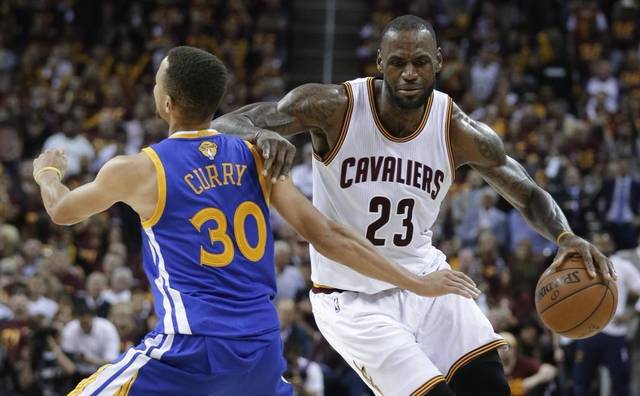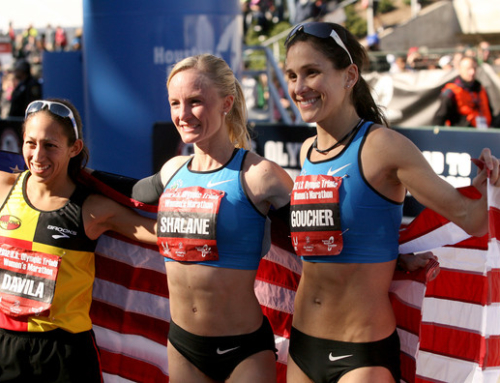By Eddie Pipkin
July 9, 2016
Okay, straight up, I know some of you ministry partners hate sports metaphors. I know they drive you nuts. So, my apologies—it is quite possible that for you this blog will be an air ball (see what I did there?)—but so amazing was game seven of the recent NBA finals, so dramatic was the comeback of the Cleveland Cavaliers, and so epic the storyline of LeBron James and the return of the prodigal son, mixed with a dose of David and Goliath and any number of other potential biblical references, that I just can’t resist.
You can click here and enjoy Paul Flannery’s giddy recap at SB Nation, titled, “You Can Believe in LeBron James”, or you can just take my word for it. I don’t even start watching pro basketball until it gets to the playoffs, but this was a game for the ages.
LeBron displayed as crystal clear an example of leadership as has been served up on a court, field,  or rink. He led by personal example, and he led by demeanor. The Cavs were down 3-1 in the series against the Golden State Warriors (who had set a new record for dominance in a regular season), and nobody gave them a chance. Except LeBron. He had a plan and calmly encouraged his teammates to remain faithful to that plan and to each other. The sportswriter Flannery writes, “[LeBron] was so eerily calm on the Saturday before Game 7 that everyone who left that practice session was convinced he was going to pull it off.”
or rink. He led by personal example, and he led by demeanor. The Cavs were down 3-1 in the series against the Golden State Warriors (who had set a new record for dominance in a regular season), and nobody gave them a chance. Except LeBron. He had a plan and calmly encouraged his teammates to remain faithful to that plan and to each other. The sportswriter Flannery writes, “[LeBron] was so eerily calm on the Saturday before Game 7 that everyone who left that practice session was convinced he was going to pull it off.”
And the series MVP expressed no shock when they did, in fact, pull it off. Flannery quotes him afterwards: “I’m true to the game, and I know what I bring to the table.” He had left the championship team in Miami to bring a long-awaited trophy to his hometown of Cleveland. But this quest was not built on wishful thinking. He worked hard for two years, day in and day out, pursuing a clear strategy and balancing his own hard work with encouragement of his teammates. He understood what he could do as an aging player and what he could no longer do. He understood the strengths and weaknesses of his teammates and worked to help them understand those things about one another.
The success of this strategy and how it ultimately led them through a hard-fought season to the championship is evidenced in the post-victory words of Kyrie Irving, who was given the seemingly impossible task of playing head-to-head against Golden State Warriors superstar Steph Curry: “I understood that I didn’t have time to be anything less than myself,” Irving said. “I didn’t have time to worry about what was going on with what everyone was saying about what we needed to be as a team. What I needed to do, what the lineup should be, what kind of player I, myself, needed to be in order for our team to be successful. I talked to Bron, I talked to T. Lue, I looked for a lot of wisdom from our veterans, and it was just constant, constant, a feed of confidence from all those guys.”
Ditto the often scorned Kevin Love, who came through big time when it most mattered. Ditto this whole team, demonstrating what teamwork is supposed to look like.
There’s a lesson here for those of us in ministry (of course there is!). We lead teams, and those teams take their confidence from us. We push, pull, cajole, keep everybody’s eyes on the prize, and keep them focused on who our true Coach is. What is perhaps most instructive about LeBron James and his leadership in this particular instance though (I almost wrote “leadership in this moment,” but this is really patient leadership for the long haul), is his laser-like realistic vision.
“I know what I bring to the table,” and its implicit mirror image perception: “I know what I don’t.”
No excuses, no false humility, no “if onlys.” This has always struck me as one of the most compelling characteristics of Jesus: this clear-eyed, straight-ahead, unflinchingly honest view of people and the world. It’s optimistic without invoking Pollyanna. It acknowledges flaws and shortcomings realistically without invoking gloom or despair. It is the essence of teamwork.
Here are some ways we can encourage this championship spirit on our own teams:
• Acknowledge often and repeatedly in every way possible the Coach for whom we play.
• Be clear about your goals and communicate a sound strategy for getting there.
• Know your own strengths and weaknesses as a leader—be honest about them.
• Acknowledge the strengths and weaknesses of your teammates. Help each individual fully understand his or her own strengths and weaknesses, and how they contribute to the team.
• Keep the lines of communication open. Encourage conversation and sharing that is honest, but also supportive.
• Remind your team that you all sink or swim together.
• Remind your team that the day-to-day details executed faithfully and with excellence (our ministry version of “practice”) prepare us for the big games.
• Celebrate victories exuberantly.
A team that works in an honest environment of hard work and nurtures one another’s gifts, with their vision aligned with God’s through prayerful discernment, will accomplish things that resonate even longer than NBA championships. What are your favorite lessons from sports heroes that you try to regularly apply to your own team leadership? Share in the comments section.







Leave A Comment